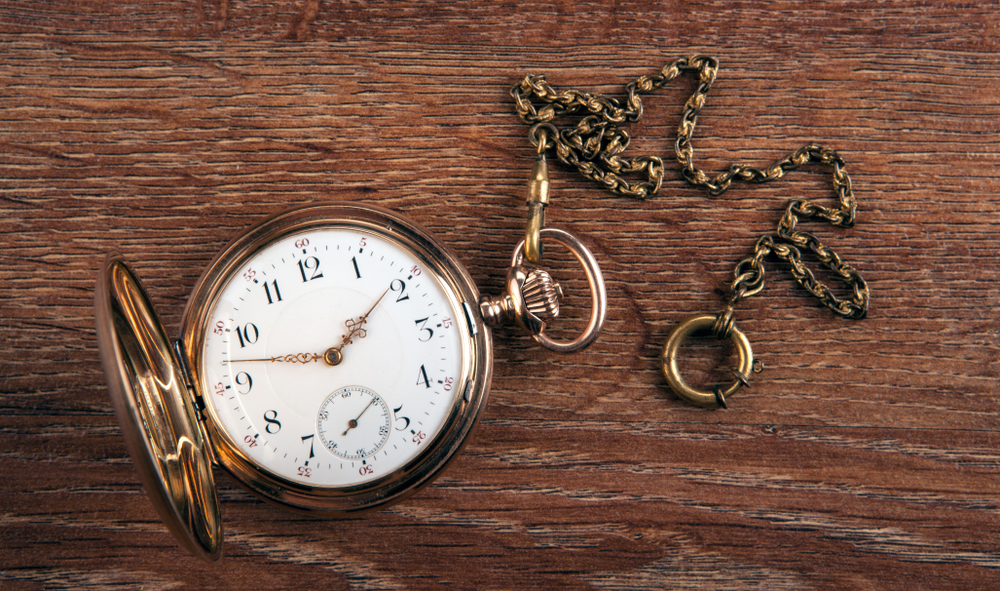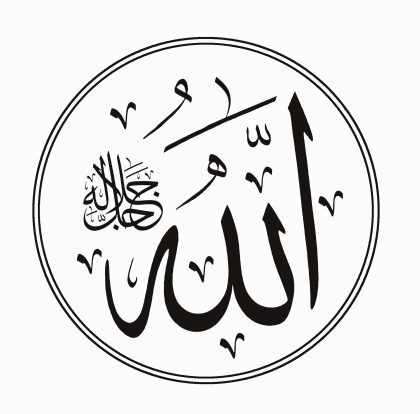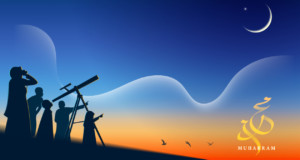
Reclaim Prophet Musa in Muharram
The fast of ʿĀshūra is in the month of Muharram, and it is enough to know that Allah aligned the month of Muharram with His own name.
The Prophet Muhammad ﷺ called Muharram “Allah’s month”, and it is the first month of the Islamic calendar.



The Prophet ﷺ encouraged us to fast as much as possible in Muharram, particularly the 10th (Āshūrā)
Fasting the 9th & 10th wipes away the year's sins. This corresponds to 27th & 28th July 2023
Be extra careful in this sacred month not to commit sins and to strive to do as many good deeds as possible
Our first nationwide campaign was In Their Shoes, which aimed to make toxic the practice of weaponising children in marital disputes. Dozens of Muslim organisations took part including over a hundred khatibs signed up for a national khutbah day.
This unique series is based on a fictional character, Adam, who has lost his father but is applicable to anyone who has experienced any form of sorrow, whether it may be theft, illness, betrayal, or rejection.
More than a thousand people turned out in front of the Chinese embassy in what was the largest demonstration of Uyghur solidarity ever to be organised by non-Uyghurs.
Click to visit the Stand4Uyghurs site.

Firstly, it is linked to our Prophet (sall Allāhu ʿalayhi wa sallam) and believing in him as the final messenger to humanity is one of the pillars of Islam and our faith as Muslims. This takes us into our great history and the most significant incident in history: the emigration of the prophet from Makkah to Madinah. That amazing journey has numerous lessons that scholars until now discover. However, the key lesson of that journey is the key meaning behind that journey. It is a transformational journey by which the ummah began to be formalised, with Islam building a new form of society based on surrendering to Allah alone with all the unique values and ethics associated with it. It is the first state to apply full justice on all members of that society. It is the only model at that time where the ruling power was treated equally to all subjects of that system.
This journey was the turning point not in the life of Muslims, but in the history of mankind. It is a turning point in the history of all other nations. A lot can be said about this hijra, but this would be enough for this context.
Secondly, three other pillars of Islām are carried out according to the Islamic calendar: Zakāh, fasting and the Ḥajj.
A Muslim is obliged to calculate his or her wealth and the zakāt payable at the same time every Islamic year (that is when the person’s hawl comes to an end), and thus, it is highly significant for an individual to know what consists of a complete Hijri year. The new moon being sighted for the ninth month of the Hijri calendar is an indication for Muslims to begin fasting. Consequently, it is regarded important for a Muslim to be aware of the Hijri calendar and the debate on the subject of the new moon. Similarly, Ḥajj occurs during the twelfth Hijri month: Dhu’l-Hijjah. Allāh says in the Qur’ān,
They ask you about the new moons. Say: These are signs to mark fixed periods of time for mankind and for the pilgrimage.[1]
The Ḥajj [pilgrimage] is [in] the well-known months.[2]
Thirdly, In addition to these pillars, there are a number of other Islamic activities and practices that should be implemented in accordance with the Islamic calendar. Allāh says,
Verily, the number of months with Allāh is twelve months [in a year], so was it ordained by Allāh on the Day when He created the heavens and the earth; of them four are Sacred.[3]
In his exegetical work al-Qurtubi said about this verse that “on the Day when He created the heavens and the earth” demonstrates that His ordainment was even before the act of creating the heavens and earth, and He calculated these months, named and ordered them on that day. He revealed the knowledge of this ordainment to Prophets in the form of revelation. This is the meaning of “the number of months with Allāh is twelve months (in a year)” – its ordainment is everlasting. Al-Qurtubi went on to say that this verse indicates that the laws of worship and other things pertain to months and years as understood by the Arabs rather than months as understood by non-Arabs, the Romans and the Copts, even if their months do not extend beyond twelve months.
It is narrated from Abū Bakr (raḍiy Allāhu ʿanhu) that the Prophet (sall Allāhu ʿalayhi wa sallam) said,
The division of time has turned to its original form which was in existence the day Allāh created the heavens and earth. The year consists of twelve months of which four are sacred: three consecutive months, Dhu’l-Qa’dah, Dhu’l-Hijjah and Muharram, and Rajab of Mudhar which comes between Jumada and Sha’bān.[4]
Fourthly, the first month of the Hijri year, Muharram, is a sacred month which has a number of key virtues. Some scholars considered it as the best month after Ramadan.
Abu Uthman Nahdi (rahimahullah), a great Tābi’i, says, “They (ie. the Sahaba) would honour/ respect three sets of ten days: (1) the last ten days of Ramadan (2) the first ten days of Dhul-Hijjah (3) the first ten days of Muharram.” It was also reported by ‘Abd al-Razzāq in al-Musannaf that Ibn Umar rarely did not fast in the sacred months.
It has been narrated from the Prophet (sall Allāhu ʿalayhi wa sallam) that after Ramadan, the most rewarding time to fast is in the month of Muharram. It was narrated that Abū Hurairah (raḍiy Allāhu ʿanhu) said, “The Messenger of Allāh (sall Allāhu ʿalayhi wa sallam) said: ‘The best fasts after Ramadan is the month of Allāh – Muharram, and the best prayer after the obligatory prayer is prayer at night.’”[5]
The Prophet called this month the month of Allāh as an indication of its great status.
Al-Hāfidh al-Suyūti said: I was asked as to why Muharram is singled out as the “month of Allah” from the rest of the months, although other months have equal merit or even more than it, such as Ramadan. I found the following answer: for this is an Islamic name unlike the rest of the months, for their names were there during the times of Jāhiliyya (Ignorance). As for the name Muharram it was known as Safar al-Awwal during Jahiliyya, after it was Safar al-Thāni. When Islam came Allah called it Muharram, so it was attributed to Allah because of this consideration.
Fifthly, many other rulings are connected to the Hijri calendar. Included is the ʿiddah of a female widow as four lunar months and ten days. The ʿiddah of a woman who does not see a period due to age is three lunar months. Allāh tells us in the Qur’ān,
And those of your women as have passed the age of monthly courses, for them the ʿiddah (prescribed period), if you have doubts [about their periods], is three months, and for those who have no courses their ʿiddah is three months likewise, except in the case of death.[6]
If the signs of bulūgh (puberty) within an individual are absent, bulūgh is determined according to the Hijri calendar and not the Gregorian one. The kaffārah (expiation) for sexual intercourse during Ramadan, zihār, and killing by mistake, is fasting two Hijri months consecutively, which are between 29 and 30 days. It was narrated from Ibn ʿUmar (raḍiy Allāhu ʿanhu) that the Prophet (sall Allāhu ʿalayhi wa sallam) said,
We are an unlettered nation, we do not write or calculate. The month is such-and-such or such-and-such – meaning sometimes it is twenty-nine and sometimes it is thirty.[7]
Firstly, we have to realise that Islām itself propagates the Hijri calendar. We are able to carry out various practices according to the Sunnah of the Prophet (sall Allāhu ʿalayhi wa sallam) through the use of the Islamic calendar. Moreover, we have to ensure that we use the Islamic calendar for all of our Islamic activities. Our mosques should have facilities that digitally display both the Hijri and Gregorian calendars. In addition to this, we should also display wall calendars. Families can play an important role by reminding their children of the importance of certain Hijri dates in the life of a Muslim.
It is noticeable that more people have started to be more aware of this Hijri calendar. More people are extending greetings and congratulating for the Hijri new year. This is great improvement alhamdulillāh. We don’t want to make this as an issue in our context, rather we should be proud that our ummah is getting back to its legacy and heritage.

The fast of ʿĀshūra is in the month of Muharram, and it is enough to know that Allah aligned the month of Muharram with His own name.

Much confusion surrounds this day. Some Muslims treat this occasion as a day of celebration and joy, while others mark it as a day of sadness and mourning.

Here is a summary of the ʿĀshūra story and its role in defining the relationship between Islam and innovated or distorted religions.

Why is Muharram singled out as the “month of Allah” from the rest of the months?

Many are unaware that a new Hijri year has begun, but had today been 1 January, we’d all have known about it. Have we become detached from our heritage?

Does our right to Mūsa (ʿalayhi al-Salām) extend beyond just fasting the Day of ʿĀshūra? What is the true legacy?


Sign in to your account